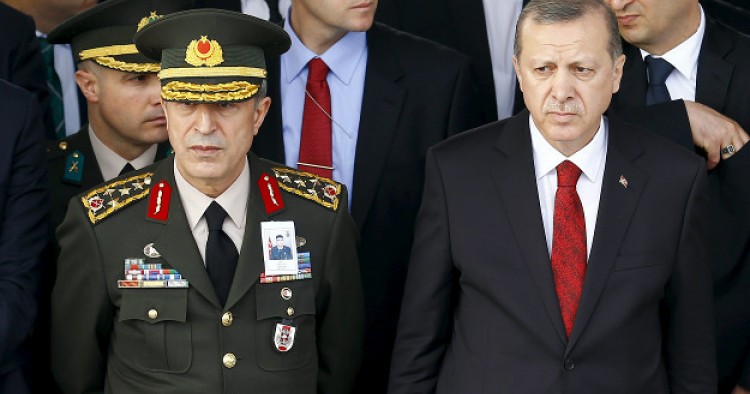Read the full article on Foreign Affairs.
Before Turkey took an authoritarian turn under President Recep Tayyip Erdogan, many thought that the former head of the Justice and Development Party (AKP) would go down in history as the leader who finally tamed Turkey’s military and resolved the country’s decades-long conflict with the Kurds. Such hopes now seem outrageously misplaced.
Erdogan has given the military a blank check to wage war against Kurdish insurgents and has struck a cozy alliance with the generals. For his part, Erdogan must believe he is killing several birds with one stone. The military campaign against the Kurds both weakens the country’s largest minority, which recently dealt a blow to Erdogan’s ambitions for unchecked power, and consolidates his power among the country’s nationalists. Along the way, Erdogan might mend ties with the country’s long-estranged military, which could come in handy as his domestic and international opponents begin to encircle him. But for Erdogan, empowering the military could be risky. There are even those within his close circle, including some of his advisers, who fear that the president is riding a tiger that, after years of harsh treatment under the ruling AKP, is all the wilder and more vengeful.
The military has reason to hold a grudge. For much of Turkish history, it has held significant sway over political affairs, staging four outright coups, forcing several other political leaders to resign, and acting as an unquestioned guardian of secular democracy.
The Middle East Institute (MEI) is an independent, non-partisan, non-for-profit, educational organization. It does not engage in advocacy and its scholars’ opinions are their own. MEI welcomes financial donations, but retains sole editorial control over its work and its publications reflect only the authors’ views. For a listing of MEI donors, please click here.













